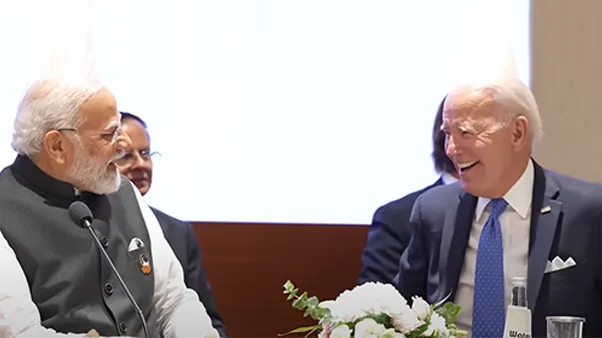The last decade or so has seen a marked shift in India’s foreign policy. Some have even referred to it as a more ‘muscular’ foreign policy. Whatever the terms one may pick to define it, there can be little debate over the fact that India’s ambitions on the global stage are pretty clear for all to see. While India wants to be seen as one of the centres of power in an increasingly multipolar world today, it is also carefully positioning itself as voice of the Global South.
And to leave no doubt about this in anyone’s mind, Prime Minister Narendra Modi, speaking on the occasion of the 77th Independence Day from the ramparts of the Red Fort said: “Today, India is becoming the voice of the Global South. India’s prosperity and heritage have become an opportunity for the world.”
India and PM Modi also used the G20 Presidency to work around these ambitions. A quick look at the fact that the special invitees to this year’s G20 include countries like Bangladesh, the United Arab Emirates (UAE), Egypt and Oman. This is a perfect example of how India wants to emerge as a bridge between the Global South and the developed world. The harsh reality remains that international institutions are driven and controlled by a western notion of the world. India, with the heft of the Global South behind it, wants to change it and establish its own leadership position.
In January this year, before kicking off key G20 meetings, India organised a virtual Global South summit where PM Modi said: “As far as India is concerned, your voice is India’s voice. Your priorities are India’s priorities”.
To some extent India has succeeded in its endeavour in this direction so far. In March this year, India hosted the G20 Foreign Ministers meet. Due to the sharp differences in how the G20 members view the ongoing Ukraine conflict, there was no joint statement at the end of the meet. India’s External Affairs Minister S. Jaishankar acknowledged that “on a bulk of issues we were able to get an outcome document” and that India did succeed in raising its voice for the Global South.
It is also important here to understand that the term Global South does not translate into any organised body. It is rather a loose collection of member states who were once defined as ‘third world’ or ‘developing countries.’ By positioning itself as the leader or the voice of these states, India has also played a deft diplomatic hand.
Our world today is characterised by changing geopolitics. The rise of China, the Ukraine conflict which has now become a west vs the rest battle, has made us re-evaluate global politics and influence. After more than a year of conflict, Russia seems in no mood to stop, and backed by China. Ukraine, bolstered by the support of the United States, and NATO is fighting back. Global food supply chains have been disrupted and the world faces a situation where countries are being asked to take sides. India, as is the case with some others, is reluctant to get into this ‘sides’ business.
And this is exactly where being the voice of the Global South works for India. To some extent it is similar to the non-aligned policy that India had espoused during the days of the Cold War. For India, the Ukraine conflict has also brought in a sharp realisation that it has to espouse ‘strategic autonomy’ on the world stage. Not doing so would risk spoiling relations with old and trusted friends like Russia, or new, strategic partners like the US. Some in Europe like French President Emmanuel Macron seem to be going along with India on this thought because of their own interests.
Smaller countries like Bangladesh and Egypt for instance have their own interests but do not have the heft to make an impact on the world stage. So, coming together as a part of the Global South and India voicing their concerns then works for these nation states also.
In a nutshell, India pitching itself and to a great extent succeeding in being the voice of the Global South is borne out of changing global geopolitics and it’s something that serves its global ambitions. – The writer is a senior journalist and researcher based in New Delhi.


Leave a Reply